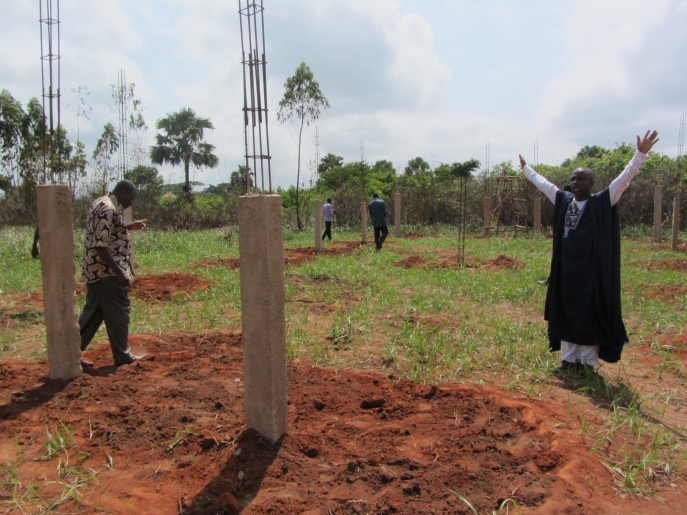This doctoral research explores the relation between evangelical churches and development in rural and urban milieus in southern Benin. I first envisioned this relationship mainly on the basis of a problematization of Pentecostal commitment in the domain of development. For example, by means of an analysis of the activities of Pentecostal NGOs, of the “theology of development”, etc. However, the ethnography of rural spaces, less problematized in studies on Pentecostalism, and of the religious experience raises other issues linked to the reconstruction of a local epistemology of the concept of “development”.

Men in prayer in Benin.
Additionally, so as to problematize the dichotomy between “Good” and “Evil” (and witch, vodun, devil, calamity) of the Pentecost churches, this inquiry conducts an ethnology of everyday practices in southern Benin villages, thus exploring the ways in which Pentecostalism is carried out through behavior, through the body, and through reflection on gender and religious education, so as to answer to the aims and preoccupations in the “going forward” process of converts.
A woman reading the Bible in local language, Benin.









